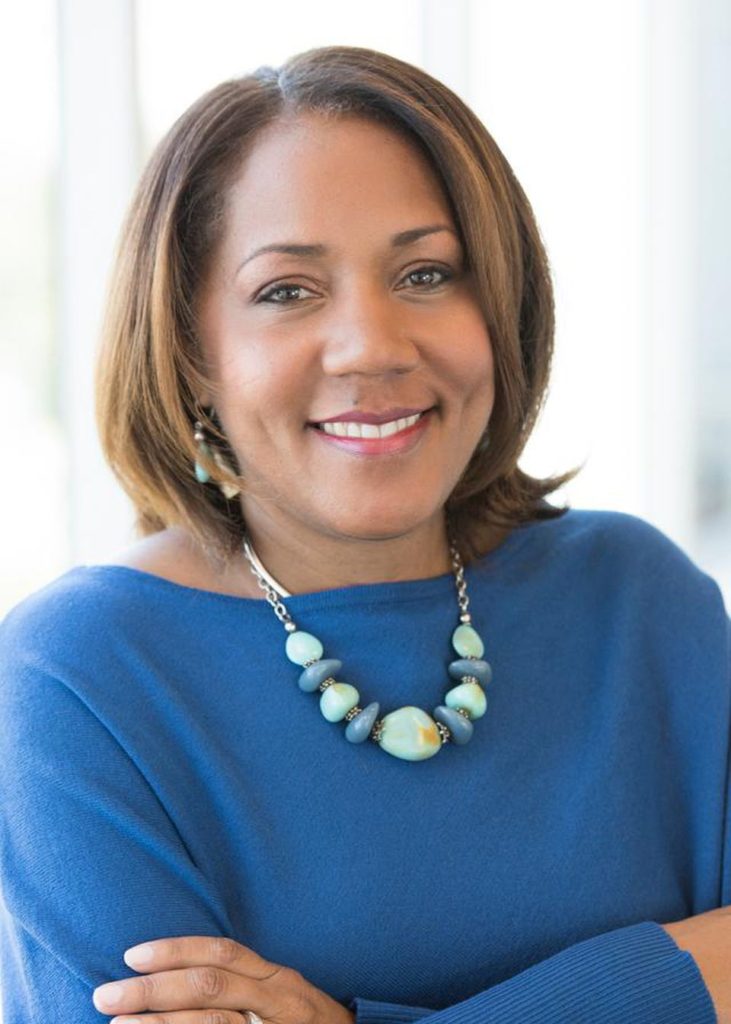Barbara Whye is on the forefront of making Intel Corporation more diverse. Since entering the Science, Technology, Engineering and Mathematics (STEM) field as an engineer, Whye has advanced to leadership positions and uses her executive-level position as Intel’s chief diversity and inclusion officer and chief human resources officer for the Technology, Systems Architecture and Client Group (TSCG) to accelerate STEM initiatives.
Whye leads Intel’s $300 million Diversity in Technology initiative to increase the representation of women and underrepresented minorities and improve employee inclusion and retention. The goal is for Intel to reach full representation of women and underrepresented minorities in its U.S. workforce. “Someone in this role should have a willingness to listen, to learn and to be uncomfortable sometimes,” she says, “We should work to create inclusive spaces where different voices can be heard, because at the heart of engineering, designing great products and making sure that you connect with your customers, is diversity of thought. This change is extremely important to the company, to its revenue and to our nation.” We spoke about her career path and advice and the importance of creating inclusive companies.

How do you think we can encourage more women to pursue STEM fields and advance to leadership roles?
We should talk more about what is possible versus focusing on the barriers. Persistence and optimism will always yield successful outcomes. We should spend more time focusing on implementing real solutions that will yield tangible results. We should develop multiple innovative pathways for women to enter STEM careers and ensure there are plenty of opportunities for women to progress. I’m an optimistic person and believe strongly that STEM careers provide amazing growth, reduce pay gaps and, frankly, are a lot of fun. Everyone should have access to a STEM career.
It’s also important to seek out mentors and role models who can support you along the way. Diverse people are needed in all areas of technology and by bringing together people with a wide range of perspectives, backgrounds and experiences and also encouraging a community of inclusion, we will innovate and drive future growth in the technology industry.
What advice would you give to someone who wants to start a Diversity and Inclusion initiative at their workplace?
Begin your strategy development work with inclusion at the center of the work. Inclusion transforms individual and group performance, has a strong link to employee engagement and talent retention and leads to better business results. To successfully sustain diversity and inclusion results, in addition to delivering to diversity representation goals, organizations must also prioritize the importance of inclusive leadership. It will empower employees to bring their best, and it also creates a sense of belonging and a community where employees can thrive.
What’s the biggest lesson you learned at work and how did you learn it?
Through our diversity and inclusion journey, I’ve learned to never underestimate the power of sharing. We will only drive industry transformation by being open and honest about our achievements, challenges and opportunities. We can’t learn or grow without putting our heads together to share our successes, our challenges and our failures – and putting those learnings to work.
What is one thing that you wish you had known when you were starting out your career?
The one thing that I wish I had known when starting out my career was that it’s okay to ask for help. Asking for help is a strength not a weakness. I also learned quickly that it’s essential to find sponsors. This is key to retention and growth, because they end up being the bridge between the job that you have and the job that you aspire to have.
In times when you feel stuck or uncertain, know there are always others you can reach out to. I have had a host of wonderful mentors, sponsors and role models who have supported and encouraged me along the way.
What is the best advice you’ve ever received?
I’ve been fortunate to receive a lot of great advice from various mentors. It truly does “take a village.” One of my favorite quotes is: “Leadership is about making others better in your presence so that the impact is felt in your absence.” I think it’s important to continue to inspire those around you and make sure that the work you are leading is sustained.
I would also add that my family has had the biggest and most consistent impact on my professional DNA —especially my mother. She is fearless, resilient and always full of faith and optimism. I model these traits daily and, in doing so, it accelerates my ability to lead, learn and unlearn.
What is your career advice for other young professional women?
Speak up, speak out and stay true to your dreams and authenticity. Choosing to be uniquely you is a freeing and powerful choice. I also firmly believe that optimism is an important leadership characteristic and is linked to yielding successful outcomes. This is an exciting time for women to enter the tech industry and they are needed!
There are more women in technology than when I entered the technical field and it will continue to increase because it is our collective goal to drive more programs that result in more women and underrepresented minorities entering and staying in tech. Women currently represent more than half of college graduates so the future of the technology industry is truly in our hands.
































